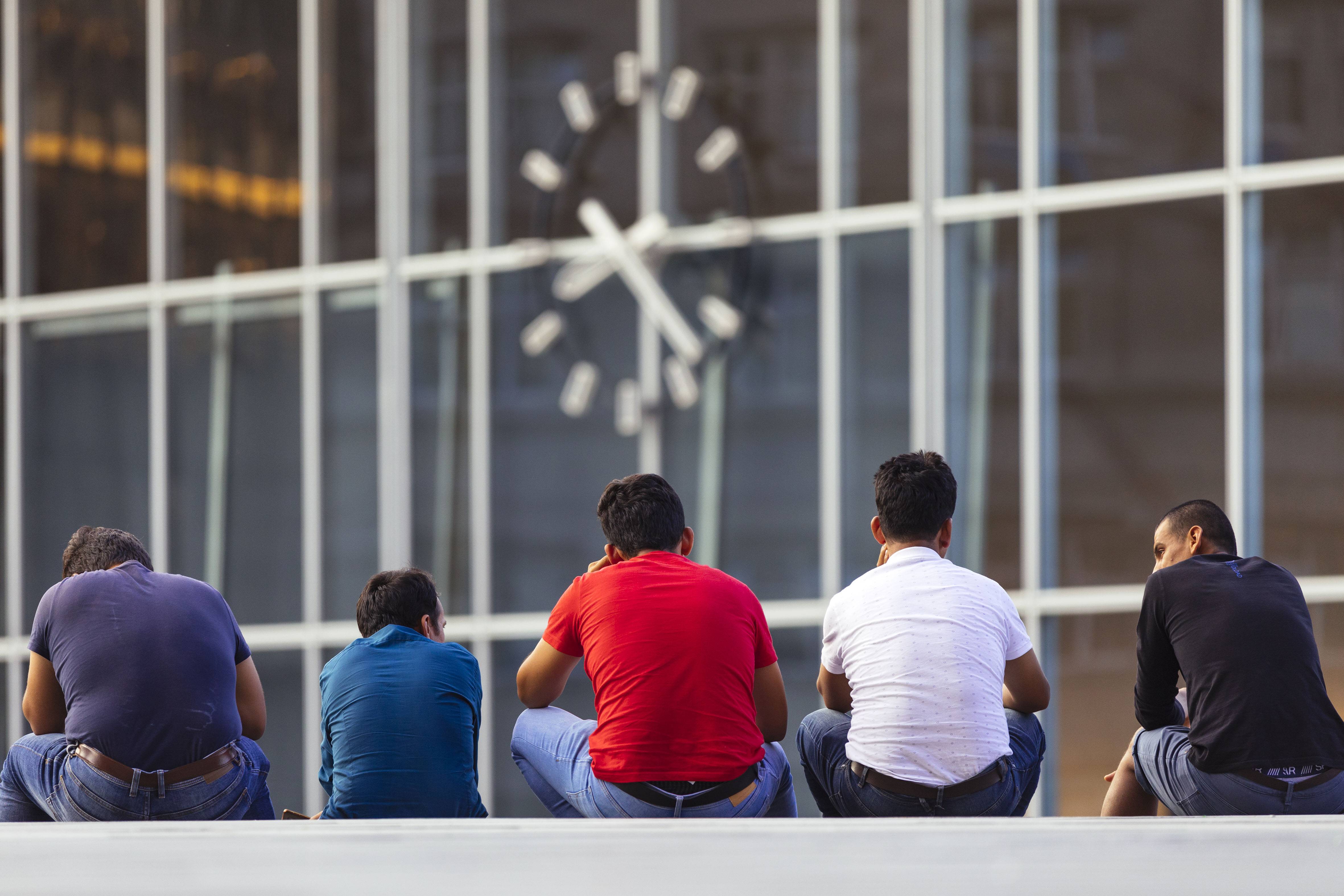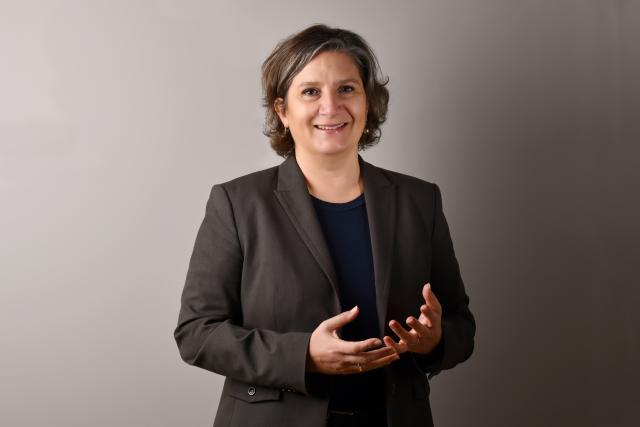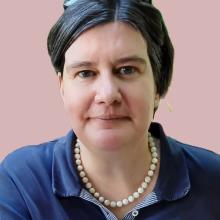

Why qualifications are often not enough, and how science can lead the way to genuine inclusion
Back in 2023, the so-called “Mitte Study” – a survey of the attitudes of the social middle class conducted every two years on behalf of the SPD-affiliated Friedrich Ebert Foundation – revealed that eight percent of people in Germany held right-wing extremist views. In previous years, this figure was two to three percent. Representatives from these ranks are publicly stating that migration is the root of many problems – blaming it for violence and housing shortages. “Many people are afraid of immigration,” says Professor Lisa Rosen. “The white middle class is afraid of losing its privileges.”
The labor market needs immigration
Yet Germany’s labour market alone requires immigration. So, how can we ensure that migration does not cause fear? What can be done to help refugees integrate? “We have to move away from the idea that anyone needs to be integrated. It's not the people who are the problem, it's the institutional barriers,” says Lisa Rosen. The task is not a one-way street: “It's about the inclusiveness of society, schools, and the labour market.”
In other words, society must create structures that allow every individual to contribute to it. According to the education scientist, this can be achieved by enabling participation. She identifies what she sees as a key problem: in this country, not everyone is able to develop their talents, “because, for example, multilingualism is only valued in its elite form with prestigious languages in schools.”
The Education sciences have a "translation problem"
Inclusion is a huge undertaking with many obstacles to overcome. What educational research recommends does not always quickly find its way into practice. As Rosen sums up: “We have a translation problem.” In recent years, for example, research has identified numerous demands that have had little impact in “real life.” “Yet these would be important for breaking down barriers and discrimination.” According to Rosen, this includes abolishing the selective school system. “The expansion of all-day schools.” It also means that career recommendations should not be made too early in a child's school career.
Wanted: new concepts
However, there is also a lot to be done outside of school. The labour market needs more flexibility, says Lisa Rosen. “We have to ask ourselves how we can make it easier for people to change career.” For example, there are qualified refugees who are still acquiring German as an additional language: “There are too many people who are professionally competent but aren't allowed to work” because, as immigrants, they don't have a work permit. “We need concepts that make it easier to change careers. That would help refugees. At the same time, it would address the shortage of skilled workers.”
Is everything a work in progress when it comes to inclusion? No, the professor says that a lot has already been done in recent years. She cites compulsory schooling as an example: until recently, this did not apply to new immigrants in some federal states. “It is so important that newly arrived children of school age can attend a regular school from the outset – and are not segregated into special programs. This is the only way to enable genuine participation and everyday life with their peers.”
The basis for participation: understanding each other
How participation can succeed is a central question for Lisa Rosen's research team. One of their projects, for instance, addresses with the power imbalance between refugees and volunteer refugee aid workers: How do both sides perceive this? To find out, Lisa Rosen and her team examined at sponsorship and social mentoring projects, first askking the volunteers “whether and how they perceived such inequality.” Rosen summarises that the volunteers feel compassion “given the difficult situation the refugees find themselves in.” At the same time, however, the volunteers are also aware of their own privileges: “For example, when they realize how difficult it is for refugees to find an apartment or a job – assuming they even get a work permit.” Among the refugees, however, Lisa Rosen continues, there is a great sense of gratitude. ”They would like to repay the helpers." But that is difficult, she says, given their limited resources.
“Critical Service Learning” – learning through engagement
The “Critical Service Learning” project takes a similar approach. Here, students act as mentors in learning tandems, supporting newly arrived immigrants or refugees. “The students are where volunteers would otherwise work,” explains Lisa Rosen. As well as helping them to learn German, the learning tandems visit their favourite places together. Lisa Rosen's team accompanies all of this with (self-)reflection: “As part of our research, we look at how the students experience all of this.” What insights have been gained so far? “The students recognise the pressure the refugees are under” – whether it's questions about their residence status, finding housing, or accessing the job market. They also learn to question their own preconceptions critically: “They understand that trauma is generated within the German migration system itself – and at the same time recognise the refugees' capacity to act.”
Does our cultural world reflect the global world?
Rosen's research team is also conducting an international comparative study on the topic of social inequality. An EU project is investigating how cultural education can promote social justice: “For example, is the global world reflected in our cultural world? Do our cinemas, museums, and other cultural institutions provide insights into the whole world, or just a Eurocentric slice of it?”
Or, to put it another way: How can cultural education help raise awareness of social inequality? This is the question addressed by the project “Exploring and Educating Cultural Literacy through Art” (Expect_ART), which is funded by the European Union. It is coordinated at the University of Southern Denmark. A total of six universities and six cultural education institutions from six European countries are involved.
“It's about the inclusiveness of society, schools, and the labour market"
Lisa Rosen
“Each participating universities works with a local art institution.” Rosen's team cooperates with the Kinemathek in Karlsruhe: “Together with film mediators, we develop educational programmes for children and young people.” The research into these programmess is in turn the subject of Lisa Rosen's participatory research: “Among other things, we evaluate participant observations and interviews, discuss and revise the results with the participants.”
The aim is to understand “the extent to which we are all involved in inequalities in our everyday lives and cultural activities.” It also aims to improve reflection on social inequality among children, young people, teachers and the interested public.
Rosen gives the formation of canons in art and cultural history as an example of inequality. A canon is a collection of works that are considered particularly valuable and representative. “In German art history, works by white, male artists are often favoured, while works by women, people of color, or queer artists have been marginalised or excluded.” This exclusion reflects social power relations and, according to Rosen, leads to “certain perspectives and experiences not being represented at all or only in a distorted way.”
Lisa Rosen adds: "Certain cultural forms of expression or themes are therefore not sufficiently taken into account in cultural education programmes, which also hinders access to cultural participation and the recognition of diverse cultural perspectives. Reflecting on these inequalities aims to develop critical cultural literacy, enabling all participants to recognize discrimination and to question social inequalities."
Questioning oneself
What could we all do to enable inclusion? Lisa Rosen explains that the media mainly reports negative stories about refugees and migrants. Yet there is so much positive news: for example, the inventors of the first approved mRNA vaccine against COVID-19 are the children of so-called guest workers. “We need more representation: doctors, teachers, researchers, politicians, and artists of colour who are visible in public.” What can individuals do? “Question ourselves about how much we are influenced by the media and also by our colonial heritage.” Perhaps critical self-reflection is the first crucial step towards inclusion.

Literature for a deeper dive:
tom Dieck, Fenna & Rosen, Lisa (Hrsg.) (2024): Freiwilliges Engagement im Kontext von Flucht und Asyl - Empirische Einblicke in die (pädagogische) Praxis. Perspektiven - Soziale Arbeit in der Migrationsgesellschaft und muslimische Wohfahrtspflege — Nr. 1 (2024).
Köhler, Sina-Mareen & Rosen, Lisa (Hrsg.) (2024): Transnationale schulische Bildungsräume - Rekonstruktionen von (Berufs-)Biographien schulischer Akteur*innen. Tertium Comparationis - Journal für International und Interkulturell Vergleichende Erziehungswissenschaft — Vol. 30, No.1.
Website of the Project Expect_ART

These topics might also interest you:



